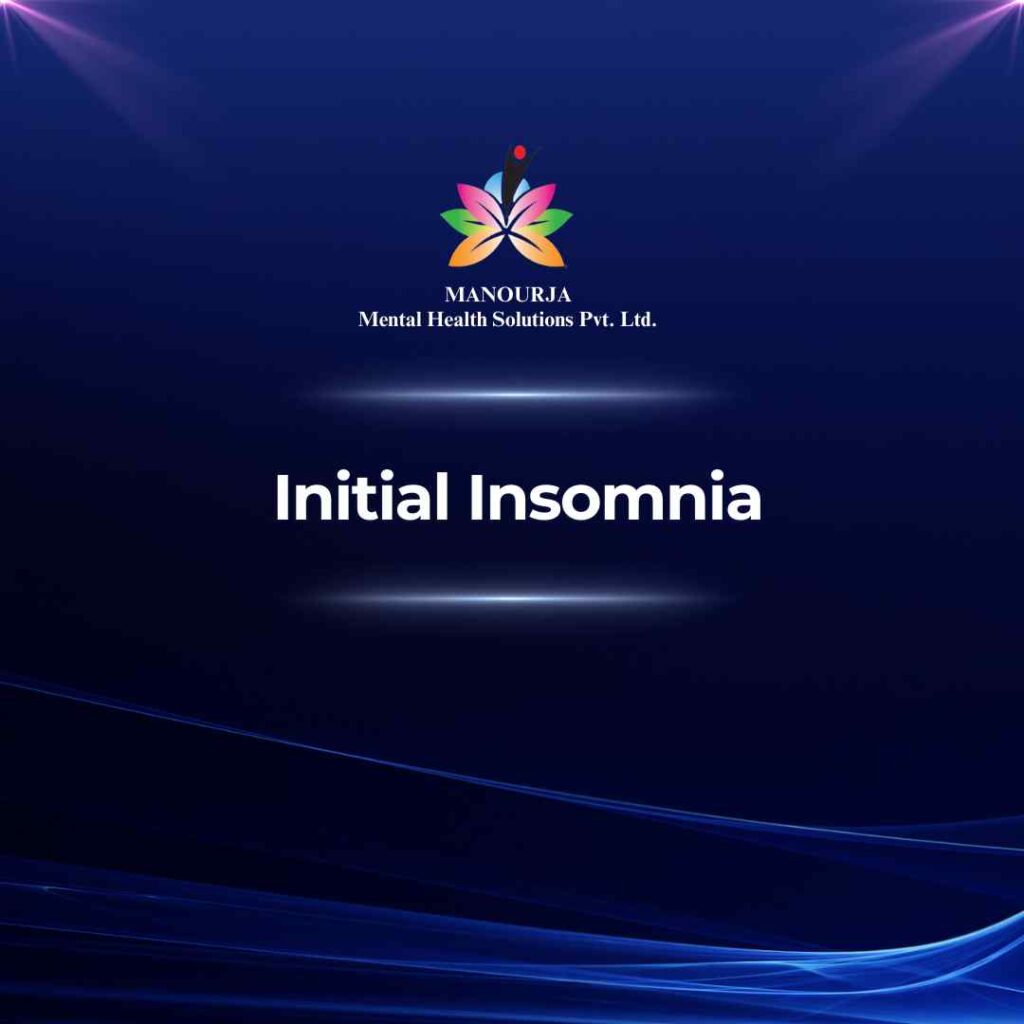Initial Insomnia

Initial insomnia refers to difficulty falling asleep at the beginning of the night, which can be a sign of various mental health conditions.
Here’s an overview:
Meaning of Initial Insomnia
Definition: Initial insomnia, also known as sleep onset insomnia, is characterized by difficulty initiating sleep despite adequate opportunity and circumstances for sleep. Individuals with initial insomnia typically experience prolonged periods of lying awake before falling asleep, often accompanied by anxiety or racing thoughts.
Significance as a Sign and Symptom of Mental Illness
Signs and Symptoms:
- Difficulty Falling Asleep: Persistent difficulty in initiating sleep within 30 minutes to an hour of bedtime.
- Anxiety and Stress: Often associated with racing thoughts, worry, or anticipation, which contribute to the inability to relax and fall asleep.
- Daytime Impairment: Insufficient sleep duration due to initial insomnia can lead to daytime fatigue, irritability, difficulty concentrating, and overall decreased functioning.
Mental Illnesses Associated with Initial Insomnia
- Anxiety Disorders: Conditions such as generalized anxiety disorder (GAD), panic disorder, and post-traumatic stress disorder (PTSD) often involve heightened arousal and anxiety, which can disrupt sleep onset.
- Depressive Disorders Insomnia, including initial insomnia, is a common symptom of major depressive disorder (MDD). Individuals with depression may struggle with sleep onset due to rumination or changes in sleep patterns.
- Bipolar Disorder: Both manic and depressive episodes in bipolar disorder can disrupt sleep patterns, including difficulties falling asleep at the beginning of the night during manic phases or mixed episodes.
- Stress-related Disorders: Chronic stress or adjustment disorders can lead to sleep disturbances, including initial insomnia, as individuals struggle to unwind and relax sufficiently to fall asleep.
Diagnosis and Treatment
Diagnosing initial insomnia involves evaluating sleep patterns, duration, and impact on daytime functioning through clinical assessment and sometimes sleep studies. Treatment approaches may include:
- Cognitive Behavioral Therapy for Insomnia (CBT-I): CBT-I is a structured psychotherapeutic approach that helps individuals identify and change behaviors and thoughts that contribute to insomnia.
- Medications: Depending on the underlying condition and severity, medications such as sedative-hypnotics or antidepressants may be prescribed to improve sleep initiation.
- Sleep Hygiene Education: Promoting healthy sleep habits and creating a conducive sleep environment.
- Stress Management Techniques: Learning relaxation techniques and stress-reduction strategies to alleviate anxiety and promote better sleep.
Conclusion
Initial insomnia is a significant symptom that can occur across various mental health conditions, impacting overall well-being and quality of life. Addressing underlying mental health concerns and implementing effective sleep management strategies are essential in managing this symptom and improving sleep quality.
At MANOURJA, we believe in the transformative power of counseling. Our experienced therapists offer a safe and supportive space where you can explore your thoughts, emotions, and challenges. Through personalized counselling sessions, we’ll work together to develop coping strategies, build resilience, and achieve lasting positive change. Discover the path to a healthier, happier you with MANOURJA counselling services.
MANOURJA Rehabilitation Services
At MANOURJA, we’re dedicated to helping you in rebuild your life, after difficult times. Our rehabilitation services focus on understanding what you need to move forward, whether you’re recovering from addiction, trauma, or any psychological – social challenges. We create personalized plans, that are all about helping you, regain your strength and find hope again. With a caring team by your side, you’ll have the support to make real progress and take steps toward a brighter, healthier future.
